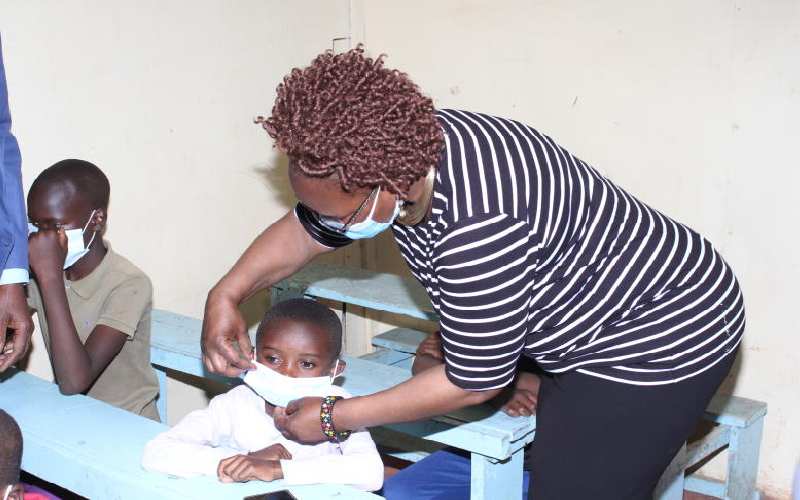×
The Standard e-Paper
Fearless, Trusted News

Nereah Anyango, an education official, fits a mask on a pupil at Precious Talents School in Nairobi. [Collins Kweyu, Standard]
A hard beginning awaits teachers and learners tomorrow when schools reopen 10 months after closure due to Covid-19 pandemic.